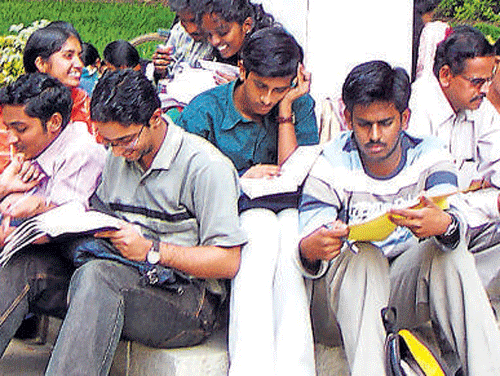The University Grants Commission (UGC) has proposed bringing in a system of mandatory accreditation and periodic assessment of performance of all the higher educational institutions offering distance learning programmes, seeking to ensure that courses match the quality of those offered at class-room teaching mode.
In its draft regulation for open and distance learning programmes, it also sought to bring in a provision for external audit of all the self-study materials by “eminent” experts before they are launched by an institution.
The commission, which will now be regulating all the higher educational institutions offering courses in distance mode, also sought to tighten the norms for institutions offering post-graduate research programmes including M Phill and PhD.
The draft regulations of the commission make it mandatory for all the institutions to set up a research advisory council consisting of at least three external experts of eminence in the broad area of research.
All the research proposals will have to be approved by the research advisory council before candidates are enrolled as a research student of the institution offering post graduate research programmes in distance learning mode.
“No higher educational institution offering open and distance learning programmes will enrol any research candidate in any broad area of research programme unless it has adequate number of eligible guides as per the commission’s norms,” the commission stipulates.
Permanent members
These research guides should be permanent members of the faculty of such institutions in the broad area of studies to be offered by it to students, it adds.
Institutions will be recognized by the UGC for offering open and distance learning programme only for five years, which will be extended only after review of their performance.
Institutions offering distance learning programme will have to establish a Centre for Internal Quality Assurance (CIQA) within one year from the date of Regulations coming into force.
Though the commission seeks to allow the institutions enjoy their administrative and academic autonomy, it reserves its powers to carry out periodic inspection and take action for violation of the regulations, the norms and its guidelines, either on its own or on receiving such complaints.
